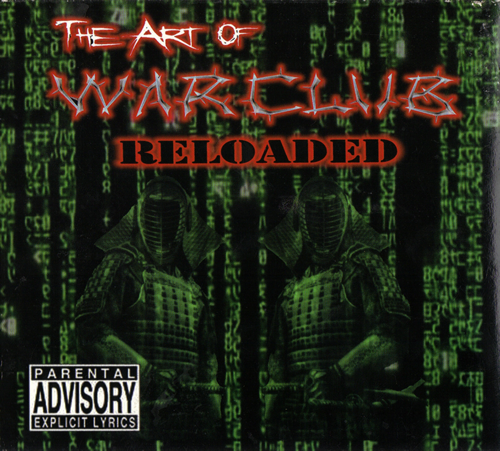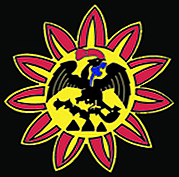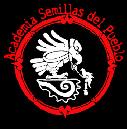After gaining independence from Great Britain in 1948, Sri Lanka experienced
escalating ethnic conflict between the majority Sinhalese and the Tamil
minority. The antagonism dated to the struggle to choose a national
language. Two propositions were considered: “Sinhala only”
or “parity of status for Sinhala and Tamil.” As the majority
language (nearly 70 percent of Sri Lankans speak Sinhala), Sinhala could
also be used to stand in for a range of related identities that emphasize
the uniqueness of Sinhalese Buddhist culture particularly to differentiate
it from Tamil Hindu culture with its uncomfortably close connections
to South India, which loomed large above the island.
Tamils rejected the victory of the “Sinhala only” proposition in the general election of 1956; they feared that that policy would place them in a disadvantageous position with respect to employment and higher education. Although the extent of protections for the use of Tamil has varied from 1956 to the present, the contentiousness of the debate has only escalated.
By 1975, the language question had evolved to include the complex issue of national and territorial rights; a powerful Tamil secessionist movement had emerged. Both sides in the developing civil war have grown increasingly intransigent, and the conflict has drawn in Sri Lanka's large neighbor to the north (it is likely that Rajiv Gandhi's assassination [[>] was directly connected to this conflict).
1956, April 12 > June 15
Parliament approved the Sinhalese Language Bill to make Sinhalese the sole official language of Ceylon, despite rioting by the Tamil-speaking minority. The Senate, on July 6, approved the language bill. Language became the basis of nationalism; Sinhala nationalism became equated with Sri Lankan nationalism, which Tamils rejected.
1972, May
Ceylon was renamed Sri Lanka. The United Front government introduced a new republican constitution, advancing Sinhalese-Buddhist interests and downgrading minority rights. Protections of the use of Tamil guaranteed under the Tamil Language (Special Provisions) Act, approved in 1966, were undermined. Departing from its policy of religious neutrality, the state became more closely identified with Buddhism. The upper house of the legislature (Senate), which previously had acted as a deterrent to hasty legislation, was abolished.
1974
Mrs. Sirimavo Bandaranaike negotiated an amicable settlement regarding the status of Indians in Sri Lanka. Nearly half a million Indians eventually were integrated into the Sri Lankan polity as citizens, conferring on them a political legitimacy that, as an ethnic group, they had not enjoyed on the island since 1948.
1974
University admission policies were changed to reduce the “overrepresentation” of Tamils in higher education, an act that radicalized Tamil youth.
1975
Tamils, frustrated by reduced access to employment and higher education, formed a youth movement named Liberation Tigers of Tamil Eelam (LTTE) to carry out an armed struggle that would establish a separate Tamil state in the island's northern and eastern provinces.
1976
Tamils organized the Tamil United Liberation Front (TULF). In the Vadukkodai resolution, they proposed to wage a separatist struggle.
1977, Feb > July
Mrs. Bandaranaike and the Sri Lanka Freedom Party (SLFP) were defeated in elections by the United National Party (UNP), led by J. R. Jayawardene. When Tamil Appapillai Amirthalingam became leader of the opposition, ethnic and language rights became the basis of opposition to the government.
1978, Feb. 4 > Sept
A new constitution offered minorities a more secure position; it rejected many of the authoritarian features of the constitution of 1972 and emphasized individual rights and the rights of minorities. Article 19 declared that Sinhala and Tamil were to be the national languages of Sri Lanka (with Sinhala remaining the sole official language). Tamils benefited by the removal of distinctions between citizens by descent and citizens by registration, and by extension of civil rights to stateless persons. S. Thondaman, leader of the Ceylon Worker's Congress (CWC), the main political party cum trade union of the Indian plantation workers, entered the cabinet. These changes brought the Indian Tamils within Sri Lanka's “political nation” for the first time since the 1930s.
1980, Oct. 16
Despite attempts to accommodate minorities, the Jayawardene government faced increasing ethnic conflict between the Sinhalese majority and the Tamil minority. Tamil separatists (including a number of guerrilla groups) continued to operate in the north and east.
1983
Violence organized by “terrorist” groups marred local elections in the Jaffna peninsula. The army clashed with Tamil Tigers, leading to an anti-Tamil pogrom in Colombo.
1983 > May-July
Pressure from India on behalf of the Tamils. Indira Gandhi's government attempted to mediate between the Sri Lankan government and Tamil groups.
1983 > July
Worst eruption of anti-Tamil violence since 1958. The most severely affected was the city of Colombo and its suburbs. In an unprecedented breakdown in law enforcement, the government took nearly a week to reestablish control.
1983-85
A political settlement was attempted while the insurgent struggle continued in the north and the east.
1986
Autonomy for the Tamil north was promised by Jayawardene.
1987
Siege of Tamils in Jaffna by the Sri Lankan army. India intervened, responding to Tamil protests concerning the number of Tamil casualties.
1987 > July 29
Prime Minister Rajiv Gandhi of India and Pres. J. R. Jayawardene of Sri Lanka sign a peace agreement recognizing the Tamil language as a national official language along with Sinhala.
1987 > Oct. 7
The government introduced bills to recognize Tamil along with Sinhala as an official language, with English designated as a “link language,” and to provide for provincial councils, thus giving constitutional recognition to a devolution of power to the localities.
1987 > Nov. 12
The presence of an Indian peacekeeping force led to political changes in Tamilnad (India) as well as in Sri Lanka. The Tamilnad government retreated from support of terrorist groups and encouraged the peace accord. Although extremist Tamils felt betrayed, more moderate Tamils expressed satisfaction with the accord, since it guaranteed devolution of power to the northern and eastern provincial units. Many Sinhalese expressed dissatisfaction, feeling that too much power and land had been granted to Tamils. Thus the conflict still remained largely unresolved.
1994, Oct. 15
The Sri Lankan government released 13 rebel prisoners and started peace talks with Tamil rebel groups.
1995, Jan. 8
A truce went into effect in Sri Lanka between government and rebel groups.
1996, Jan. 31
Rebels bombed Colombo, the capital, killing dozens.
2000, Aug. 8
Pres. Kumaratunga tried to pass a new constitution in hopes of ending the ongoing civil war by giving more autonomy to the minority Hindu Tamils. She postponed the referendum when it became apparent that the constitution would not receive the necessary two-thirds vote.
2000, Aug. 8 > Oct. 10
In parliamentary elections the People's Alliance Party, backed by President Kumaratunga, was returned to power. However, the coalition did not secure the majority needed for passage of her Tamil autonomy plan.
War Club - Riotstage


Hear more War Cub music @
Mexica Uprising MySpace
Add Mexica Uprising to your
friends list to get updates, news,
enter contests, and get free revolutionary contraband.
Featured Link:
"If Brown (vs. Board of Education) was just about letting Black people into a White school, well we don’t care about that anymore. We don’t necessarily want to go to White schools. What we want to do is teach ourselves, teach our children the way we have of teaching. We don’t want to drink from a White water fountain...We don’t need a White water fountain. So the whole issue of segregation and the whole issue of the Civil Rights Movement is all within the box of White culture and White supremacy. We should not still be fighting for what they have. We are not interested in what they have because we have so much more and because the world is so much larger. And ultimately the White way, the American way, the neo liberal, capitalist way of life will eventually lead to our own destruction. And so it isn’t about an argument of joining neo liberalism, it’s about us being able, as human beings, to surpass the barrier."
- Marcos Aguilar (Principal, Academia Semillas del Pueblo)
![]()
Grow
a Mexica Garden
12/31/06
The
Aztecs: Their History,
Manners, and Customs by:
Lucien Biart
12/29/06
6 New Music Videos
Including
Dead Prez, Quinto Sol,
and Warclub
12/29/06
Kalpulli
"Mixcoatl" mp3 album
download Now Available
for Purchase
9/12/06
Che/Marcos/Zapata
T-shirt
Now Available for Purchase
7/31/06
M-1
"Til We Get There"
Music Video
7/31/06
Native
Guns "Champion"
Live Video
7/31/06
Sub-Comandante
Marcos
T-shirt Now Available for Purchase
7/26/06
11 New Music Videos Including
Dead Prez, Native Guns,
El Vuh, and Olmeca
7/10/06
Howard Zinn's
A People's
History of the United States
7/02/06
The
Tamil Tigers
7/02/06
The Sandinista
Revolution
6/26/06
The Cuban
Revolution
6/26/06
Che Guevara/Emiliano
Zapata
T-shirts Now in Stock
6/25/06
Free Online Books
4/01/06
"Decolonize"
and "Sub-verses"
from Aztlan Underground
Now Available for Purchase
4/01/06
Zapatista
"Ya Basta" T-shirt
Now Available for Purchase
3/19/06
An
Analytical Dictionary
of Nahuatl by Frances
Kartutten Download
3/19/06
Tattoo
Designs
2/8/06


